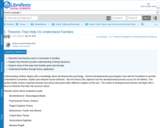
Textbook used in CSI EDUC 204 Families, Communities, and Culture
- Subject:
- Education
- Social Science
- Material Type:
- Textbook
- Author:
- Joshua Halpern
- Rebecca Laff
- Wendy Ruiz
- Date Added:
- 12/01/2022

Textbook used in CSI EDUC 204 Families, Communities, and Culture
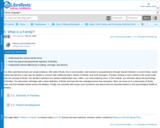
Textbook chapter used in CSI EDUC 204 Families, Communities, and Culture.
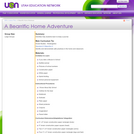
Activities help students learn to keep a journal.
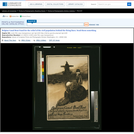
Poster showing a mother consoling her children by a canal, with the wreckage of a boat and a windmill in the background. Title from item. The Sec., 71 Duke Street, Grosvenor Square, W.
![Better Than the V.C. [i.e., Victoria Cross]](https://img.oercommons.org/160x134/oercommons/media/upload/materials/screenshots/materials-course-93132.png)
Poster showing a soldier holding a baby, as he follows his wife. Title from item. 35793 528 2000 12/18 W.G. & S.
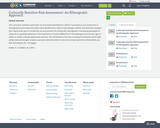
This curriculum combines systematic risk assessment (developed to address inconsistency and randomness in existing assessment tools and used to both identify factors which truly endanger children and illuminate strengths that may be build upon to ameliorate risk and preserve the family) with ethnographic interviewing (developed in response to a growing awareness of the importance of cultural differences in the helping process and the right of clients to receive culturally appropriate services). The combination of the two conceptual frameworks which helps clarify risks and strengths enables case plans and interventions to be more closely matched to what families are able and willing to do. (145 pages)Walker, P., & Tabbert, W. (1997).
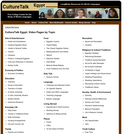
CultureTalk - Arab World features native speakers from across the Arabic-speaking world giving filmed interviews, in Arabic and sometimes English, on selected topics. Text-based translations and transcriptions are often provided as downloadable documents for most Arabic videos. The videos engage a number of region/country-specific topics, including cultural traditions, religion, politics, and sports.
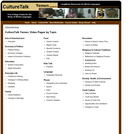
CultureTalk - Arab World features native speakers from across the Arabic-speaking world giving filmed interviews, in Arabic and sometimes English, on selected topics. Text-based translations and transcriptions are often provided as downloadable documents for most Arabic videos. The videos engage a number of region/country-specific topics, including cultural traditions, religion, politics, and sports.
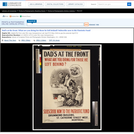
Poster showing a woman thinking of her soldier husband at the front, as children play around her. Title from item.
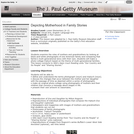
Students examine the roles of mothers and grandmothers by looking at black-and-white photographs of one American family and comparing that family's multi-generational story with their own. Students will make a photo-collage triptych based on the theme of multi-generational families. This lesson connects to SRA's "Open Court Reading" units "Our Country and Its People" and "Sharing Stories."

The Chicago Public Schools typically operate with a $7.7 billion annual budget that now has over $2.3 billion in federal stimulus funding to address inequities, COVID-related impacts and gaping needs. That is a 30% increase beyond a typical CPS budget that normally has very little room to address historic inequities. However, there is no participatory budget process in place to allow students or CPS families to have their voices heard in the process. This unit plan is designed to change that and provide opportunities for students to directly influence the budget process at this critical moment when historic inequities have widened.
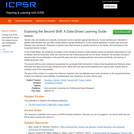
This is a learning module that uses data to investigate the influence of gender roles and attitudes about work and family on the household division of labor and childcare responsibilities.
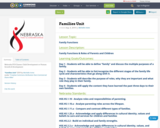
Nebraska FCS Classes: Child Development or Human Growth & Development
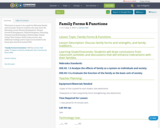
This lesson is meant to be a guide for Nebraska Family and Consumer Sciences teachers who may teach the following courses Human Development, Human Growth & Development, Child Development, Parenting, Interpersonal Relationships, Relationships, Family Living, Teen Living or Daily Living courses. Any additional readings and/or topics not included in the lesson plan should be marked N/A.
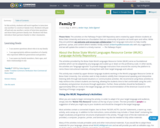
In this activity, students will work together to interview one another to construct family trees. Students will pair off and ask one another a series of interview questions and draw their partners family tree. Students will then introduce their partners family to other classmates.
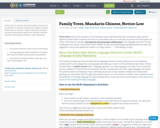
In this activity, students will work together to interview one another to construct family trees. Students will pair off and ask one another a series of interview questions and draw their partners family tree. Students will then introduce their partners family to other classmates.
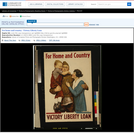
Poster showing a soldier holding a child and embracing a woman. No. 2-C.
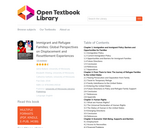
Immigrant and Refugee Families: Global Perspectives on Displacement and Resettlement Experiences uses a family systems lens to discuss challenges and strengths of immigrant and refugee families in the United States. Chapters address immigration policy, human rights issues, economic stress, mental health and traumatic stress, domestic violence, substance abuse, family resilience, and methods of integration.

This interactive and conversational session will focus on increasing awareness of AEM to families of students who receive special education. We’ll talk about barriers that can impede access, such as ableism and bias, and how increasing their knowledge can support their advocacy so their youth receive access and accommodations that create opportunities and possibilities!
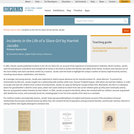
This collection uses primary sources to explore Incidents in the Life of a Slave Girl by Harriet Jacobs. Digital Public Library of America Primary Source Sets are designed to help students develop their critical thinking skills and draw diverse material from libraries, archives, and museums across the United States. Each set includes an overview, ten to fifteen primary sources, links to related resources, and a teaching guide. These sets were created and reviewed by the teachers on the DPLA's Education Advisory Committee.